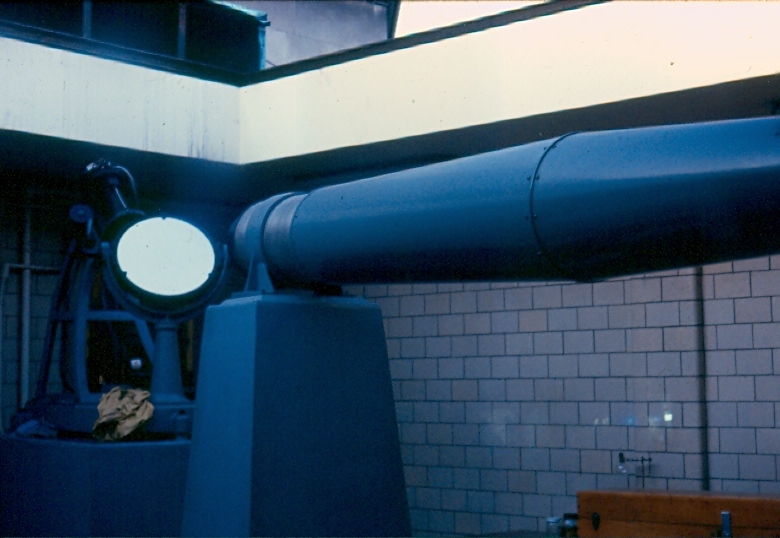
The Comet of 1491 is no longer considered the closest comet to approach the Earth
due to the unreliability of the data. (Image Source: http://s3.amazonaws.com/readers/2011/02/26/1855354571127df142e7z_1.jpg )
By Glenn A. Walsh
Reporting for SpaceWatchtower
Some people question whether Science
can be relied upon to provide a good explanation of our Universe.
Other people even consider Science to be just another religion, of
which people are asked to have faith in the infallibility of Science.
Many of these people do not understand
the Scientific Method, and that scientific hypotheses and theories
are often changed with the presentation of new information and / or
the better understanding of older information.
A case in-point is the Comet of 1491.
For many years, today (February 20) would have been considered the
525th anniversary of the day in 1491 when this comet came
closer to the Earth than any other known comet. According to what was
known until the twenty-first century, this comet approached within
873,784 miles / 1,406,219 kilometers of the Earth (almost four times
the distance from the Earth to the Moon). This distance was
determined in 1979 by plotting the orbital elements of the comet by
Japanese researcher Ichiro Hasegawa, of the Faculty of Socio-Cultural
Studies at Otemae University.
However in 2002, in an academic paper
for the Astronomical Society of Japan titled, “Approximate Orbits
of Ancient and Medieval Comets,” Dr. Hasegawa, himself, retracted
the data, from 23 years earlier, that had concluded that the Comet of
1491 was the closest comet to ever approach the Earth. In the paper,
he stated, "The orbital elements for Comet 1491 II = C / 1491 B1 (Hasegawa 1979) are to be retracted, because the records of this comet were misunderstood."
NASA's Jet Propulsion Laboratory
concurs with this retraction. On their Internet web page titled,
“Historic Comet Close Approaches Prior to 2006,” they wrote a
special note near the top of the page:
“Note: The comet of 1491 (1491
B1) has been removed from this table since its orbit is no longer
thought to be reliable. See I. Hasegawa, Publ. Astronomical Society
of Japan, 2002, vol. 54, pp. 1091-1099.”
This case shows that Science is
continually checking and double-checking facts, and no scientist
takes any particular fact on faith. In fact, even a researcher is
willing to correct himself or herself, when new facts are discovered,
or older facts are better understood.
Academic Paper: “Approximate Orbits of Ancient and Medieval Comets” by Dr. Ichiro Hasegawa ---
Link >>> http://pasj.oxfordjournals.org/content/54/6/1091.full.pdf
NASA / Jet Propulsion Laboratory Internet Web Page: “Historic Comet Close Approaches Prior to 2006” --- Link >>> http://neo.jpl.nasa.gov/ca/historic_comets.html
Scientific Method: Link >>> https://en.wikipedia.org/wiki/Scientific_method
Source: Glenn A. Walsh Reporting for SpaceWatchtower, a project of Friends of the Zeiss.
2016 February 20.

2016: 75th Year of Pittsburgh's Buhl Planetarium Observatory
Link >>> http://buhlplanetarium2.tripod.com
Want to receive SpaceWatchtower blog posts in your inbox ?
Send request to < spacewatchtower@planetarium.cc >..
gaw
Glenn A. Walsh, Project Director,
Friends of the Zeiss < http://buhlplanetarium.tripod.com/fotz/ >
Electronic Mail - < gawalsh@planetarium.cc >
SpaceWatchtower Blog: < http://spacewatchtower.blogspot.com/ >
Also see: South Hills Backyard Astronomers Blog: < http://shbastronomers.blogspot.com/ >
Barnestormin: Writing, Essays, Pgh. News, & More: < http://www.barnestormin.blogspot.com/ >
About the SpaceWatchtower Editor / Author: < http://buhlplanetarium2.tripod.com/weblog/spacewatchtower/gaw/ >
SPACE & SCIENCE NEWS, ASTRONOMICAL CALENDAR:
< http://buhlplanetarium.tripod.
Twitter: < https://twitter.com/spacewatchtower >
Facebook: < http://www.facebook.com/pages/
Author of History Web Sites on the Internet --
* Buhl Planetarium, Pittsburgh:
< http://www.planetarium.
* Adler Planetarium, Chicago:
< http://adlerplanetarium.
* Astronomer, Educator, Optician John A. Brashear:
< http://johnbrashear.tripod.com >
* Andrew Carnegie & Carnegie Libraries:
< http://www.andrewcarnegie.
* Civil War Museum of Andrew Carnegie Free Library:
< http://garespypost.tripod.com >
* Duquesne Incline cable-car railway, Pittsburgh:
< http://inclinedplane.tripod.
* Public Transit:
< http://andrewcarnegie2.tripod.
No comments:
Post a Comment